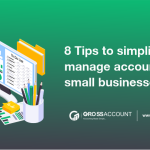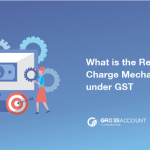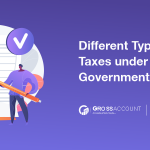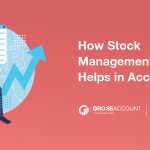Introduction
What is a Balance Sheet?
This financial statement is used for basic analysis to evaluate the financial health of the company. Professionals can also use balance sheets to calculate income. It is prepared and distributed according to the reporting period decided by the company. It can be distributed quarterly or monthly.
It is a financial statement that provides a financial summary of each business. Its purpose varies depending on the type of research. Let’s understand how important it is for the business.
Why does the business need a balance sheet?
When the internal balance sheet is analyzed, it provides insight into the success and failure of the business. When reviewed externally, it provides insight into the success of existing facilities. It also shows how to make money. From paper, companies and entrepreneurs can also benefit in the following ways:
Businesses can identify areas where they need to improve to keep their finances moving forward.
Investors can decide whether a company is worth investing in or not. Auditors can check whether the company is complying with the guidelines and laws.
Organizations can calculate key financial metrics including revenue, debt and equity ratios, and profitability.
A balance sheet can provide a snapshot of your business’s financial health at one point in time, usually at the end of a fiscal year or the end of a month. It can tell you if you owe more than you currently have and expect to receive, the value of your current assets, and the income of your business at any given time. With balance sheet data, you can track your business performance, identify trends, and implement strategies to support your finances.
It can help you figure out things like your ability to meet your financial obligations and how well you’re using credit to pay for your work. Most balance sheets will also include data from the previous year for easy comparison and to see how your business is performing over time.
You can compare the current period to the past by using percentage change analysis and ask yourself questions like; Do you have more or less wealth? Have you invested in hardware? Have you accumulated more debt? Are your accounts receivable (payable) increasing? Are your financial services under control now? It’s good for a business to know the balance sheet because the balance sheet can give you early warning signs that can help solve any potential problems before they affect the business.
The most common ratios that are useful in any business are working capital (your business value) and quick assets (business leverage).
Balance sheet data can be used in conjunction with other financial reports such as financial statements to estimate the value of an investment. Small businesses can use “return on investment” (ROI) metrics to measure the effectiveness of pricing strategies and investments in inventory or equipment. A common method for determining the return on investment is to divide net worth by total assets.
Your balance sheet changes with each business transaction, so we recommend that you review it regularly.
Classification of Balance sheet
Wealth and other liabilities are broken down into “current” and “non-current” to help you analyze your financial situation. The present is less than 12 months and the non-present is more than 12 months. In this way, we can immediately see if they need to be converted into money (assets) or paid (liabilities).
All the current assets are cash and other items that can be converted into cash within 12 months, accounts receivable (or receivables), and stocks. Fixed (or non-current) assets follow current assets and may include equipment, furniture, and business vehicles that will continue to exist and will not be replaced with more money. twelve months.
Debts should be listed in order of when they will be repaid, with current debts (repayable within 12 months) listed first. Current accounts usually include checking (or debit) accounts, credit cards, and bank transfers. Loans maturing in more than 12 months are classified as non-current liabilities. Equity is the ownership of the business plus the money held to develop the business.
Uses Of Balance Sheet
1. Secure loans and investors
Your balance sheet allows people to quickly understand the financial position of your business. Most lenders require a balance sheet to determine the financial position and solvency of the business.
If you’re applying for a loan, your credit report can help prove to lenders that you can make your repayments on time. Potential investors use the balance sheet to understand where their money will go and when they can expect to see a return on their investment.
2. To stop budding problems
The main aim of business is to make a profit from it. A successful business should show growing equity. If your business isn’t doing this, looking at some of the assets and liabilities on your balance sheet can help you figure out why. For example, if most of your assets are stocks, this can create unnecessary risk. Unsold products can quickly become a big expense.
3. To facilitate the preparation of tax returns
Keeping accurate business records is important for both planning and tax preparation. The IRS recommends that small business owners keep organized and up-to-date financial records to prepare accurate tax returns. With your financial statements in order, your accountant or tax preparer will be able to properly prepare your return and make sure you don’t pay more tax than you should. And in the case of an IRS audit, you will need to provide complete financial documentation for the audit, including income statements and receipts.
4. Assess the risk and return
A balance sheet lists all your business assets and liabilities in one place. Current and long-term assets reflect your ability to generate income and maintain employment. Short-term and long-term debt prioritize your financial obligations. You will have more assets than liabilities, indicating a positive net worth. If your current debt exceeds your cash balance, your business will need more working capital from lenders or investors.
Know the financial situation of your business
Preparing and understanding your business financial statements is an important part of being a successful small business owner. A balance sheet is especially important because it lets you and other people involved know about your financial situation. New information can help you make better management decisions.
Unless you are a financial professional, trying to do your business accounting yourself may not be the best use of your time. Whether you’re just starting or you’re an experienced business owner, getting your books and records out of the way is a good idea. A professional and experienced accounting firm will help you to keep your accounts in order. It helps you to understand and use your financial statements to improve your business operations and make further strategies.
Conclusion:
Having a well-kept balance sheet is a good way to understand the financial position of your business. It also helps attract potential investors who may be willing to invest in your business. In addition, it helps to determine the financial strength of your business, identify problems, and measure the progress of your business over time.






